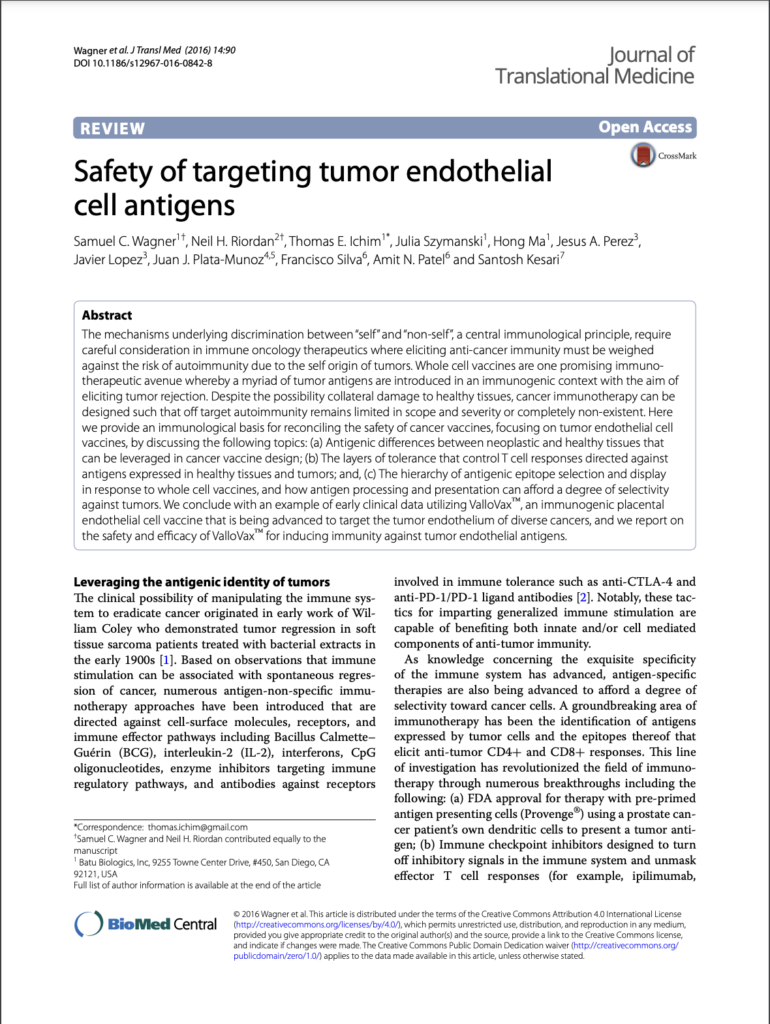April 2016
Safety of targeting tumor endothelial cell antigens.
Journal Citation
J Transl Med. 2016 Apr 12;14:90
Authors
Wagner SC, Riordan NH, Ichim TE, Szymanski J, Ma H, Perez JA, Lopez J, Plata-Munoz JJ, Silva F, Patel AN, Kesari S.
Abstract
The mechanisms underlying discrimination between “self” and “non-self”, a central immunological principle, require careful consideration in immune oncology therapeutics where eliciting anti-cancer immunity must be weighed against the risk of autoimmunity due to the self origin of tumors. Whole cell vaccines are one promising immunotherapeutic avenue whereby a myriad of tumor antigens are introduced in an immunogenic context with the aim of eliciting tumor rejection. Despite the possibility collateral damage to healthy tissues, cancer immunotherapy can be designed such that off target autoimmunity remains limited in scope and severity or completely non-existent. Here we provide an immunological basis for reconciling the safety of cancer vaccines, focusing on tumor endothelial cell vaccines, by discussing the following topics: (a) Antigenic differences between neoplastic and healthy tissues that can be leveraged in cancer vaccine design; (b) The layers of tolerance that control T cell responses directed against antigens expressed in healthy tissues and tumors; and, (c) The hierarchy of antigenic epitope selection and display in response to whole cell vaccines, and how antigen processing and presentation can afford a degree of selectivity against tumors. We conclude with an example of early clinical data utilizing ValloVax™, an immunogenic placental endothelial cell vaccine that is being advanced to target the tumor endothelium of diverse cancers, and we report on the safety and efficacy of ValloVax™ for inducing immunity against tumor endothelial antigens.

